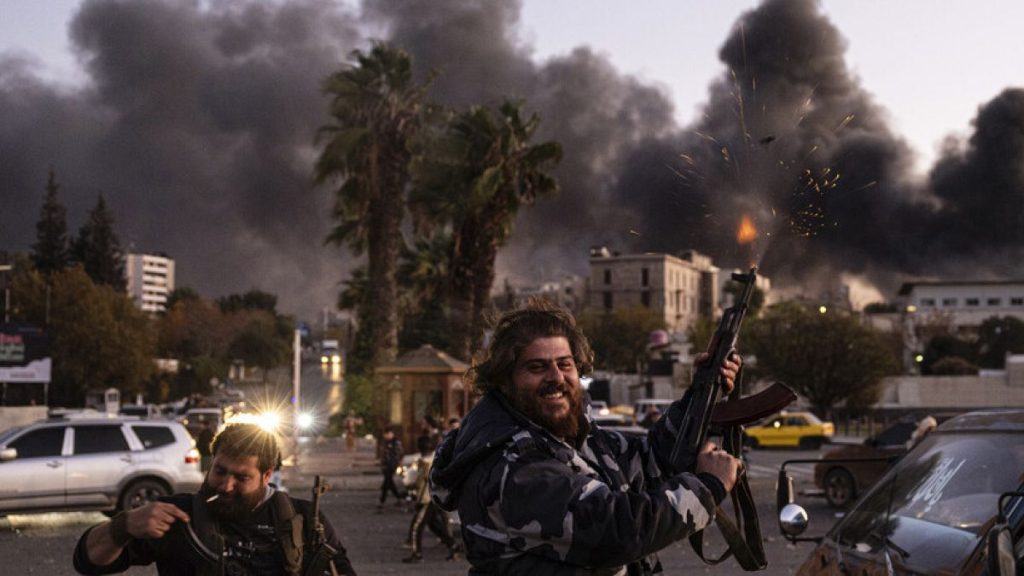The Fall of Assad: A New Dawn for Syria?
After nearly 14 years of brutal civil war and division, Syria stands at a crossroads. The unexpected collapse of Bashar al-Assad’s regime, culminating in a swift 12-day rebel offensive, has ushered in a period of profound uncertainty and tentative hope. The leader of Hayat Tahrir al-Sham (HTS), the dominant insurgent group, Abu Mohammed al-Golani, has called for a peaceful transition, urging fighters to lay down their arms and return to their bases. Former Prime Minister Mohammed Ghazi al-Jalali, appointed by al-Golani to oversee state institutions, has pledged to ensure the continuity of essential services and facilitate a smooth handover of power. While the exact timeline for this transition remains unclear, al-Jalali has affirmed his commitment to remaining in Syria and upholding the safety and security of all citizens, advocating for free and fair elections to empower the Syrian people. This marks a dramatic shift in power, ending the Assad family’s 50-year reign.
The immediate aftermath of Assad’s downfall saw a 13-hour curfew imposed in Damascus, a stark contrast to the jubilant scenes of celebration that had erupted just hours before. This measure aimed to consolidate rebel control and maintain order in the capital. However, the situation remains complex, with regional players already making moves to exploit the power vacuum. Israel, citing the collapse of the 1974 ceasefire agreement, has deployed troops to the Golan Heights buffer zone and announced its intention to seize the territory. This action has drawn condemnation from the Arab League, further complicating the already fragile situation. Reports also indicate that Israel conducted airstrikes on multiple Syrian locations, targeting weapons depots and military installations. This adds another layer of complexity to the unfolding events, with international concern mounting over the potential for further regional instability.
The rapid and unexpected nature of Assad’s downfall can be attributed, in part, to the weakened state of his key allies, Russia and Iran. Russia’s ongoing war in Ukraine has stretched its military and financial resources, limiting its capacity to support Assad’s forces. Similarly, Iran’s focus on replenishing the resources of its proxies, Hamas and Hezbollah, following the recent conflict with Israel, has further diverted its attention and resources away from Syria. This confluence of factors left Assad vulnerable and isolated, unable to effectively counter the rebel offensive. The timing of the rebellion proved crucial, capitalizing on the diminished capacity of Assad’s allies to intervene. This allowed the rebel coalition to swiftly advance, capturing key cities and ultimately seizing control of Damascus.
The rebel offensive, spearheaded by HTS and the Syrian National Army, commenced on November 27th with a two-pronged attack on Aleppo. Despite initial resistance from Assad’s forces and reported Russian air support, the rebels quickly gained control of large parts of the city. This initial success propelled their advance, leading to the capture of Hama and Homs before finally reaching the outskirts of Damascus. The rapid collapse of Assad’s defenses in the capital, coupled with reports of his flight from the country, signaled the end of his regime. Confirmation of Assad’s arrival in Moscow, where he has reportedly been granted asylum, further cemented the end of an era.
The Syrian civil war, ignited by the 2011 Arab Spring uprisings, has left an indelible mark on the country and the region. The conflict has resulted in more than 14 million displaced people, creating the world’s largest refugee crisis. Millions of Syrians have sought refuge in neighboring countries and beyond, with Germany hosting the largest number of Syrian refugees outside the region. The war has also caused widespread internal displacement, with millions more Syrians uprooted within their own country. The humanitarian crisis is dire, with a vast majority of the population living below the poverty line and in dire need of assistance. Rebuilding Syria and addressing the immense humanitarian needs will be a monumental task, requiring substantial international cooperation and support.
Looking ahead, the path to a stable and peaceful Syria remains fraught with challenges. The formation of an interim government, the disarmament of various rebel factions, and the potential for renewed conflict all pose significant obstacles. The involvement of regional powers, such as Israel, adds further complexity to the situation. Furthermore, the deep-seated divisions within Syrian society, fueled by years of conflict, will require careful and inclusive reconciliation efforts. The international community has a crucial role to play in supporting Syria’s transition, providing humanitarian aid, and fostering a political process that addresses the needs and aspirations of all Syrian people. The long and arduous journey towards recovery and rebuilding has just begun. The international community must commit to supporting Syria in its quest for peace, stability, and a future free from the devastation of war. The task ahead is immense, but the hope for a brighter future remains.














